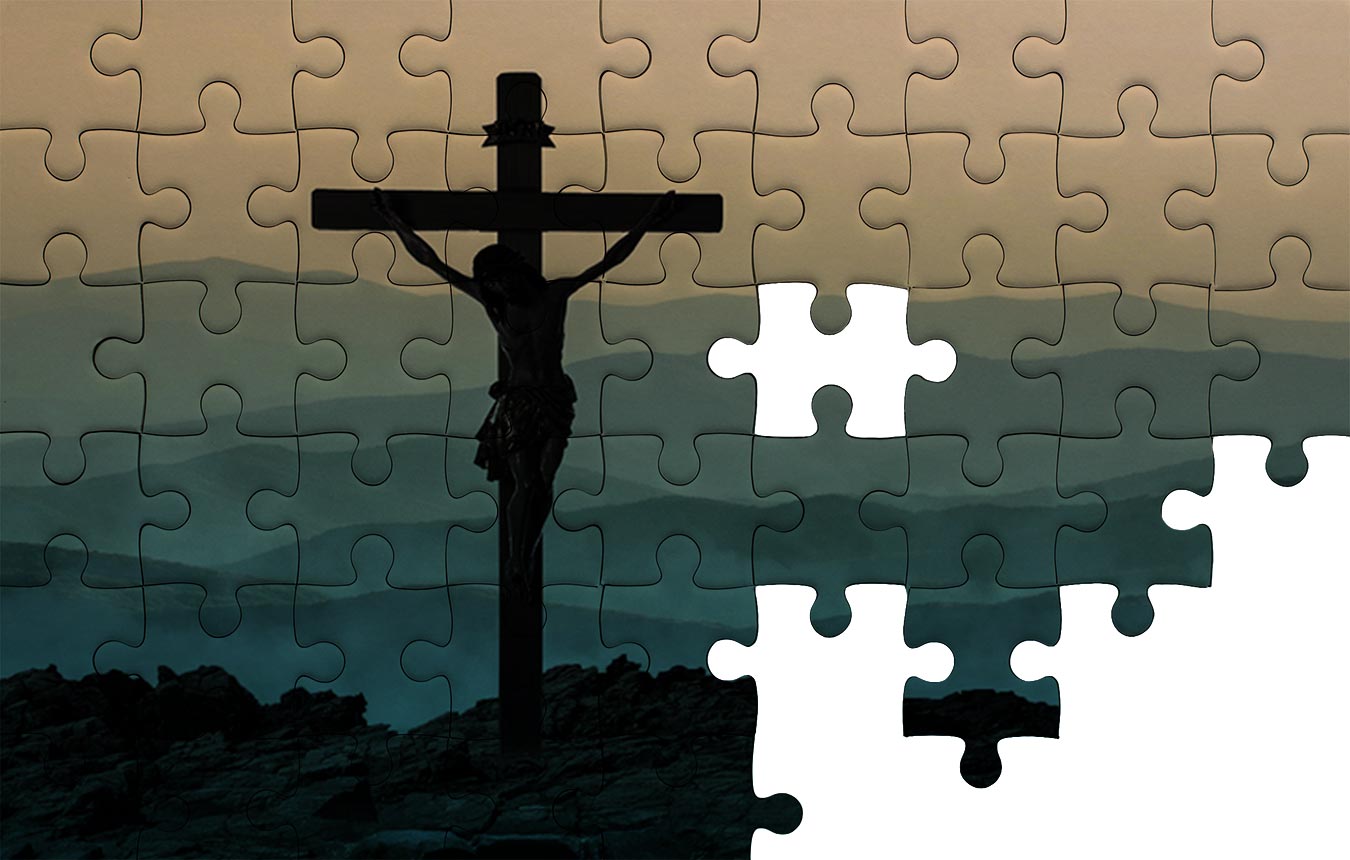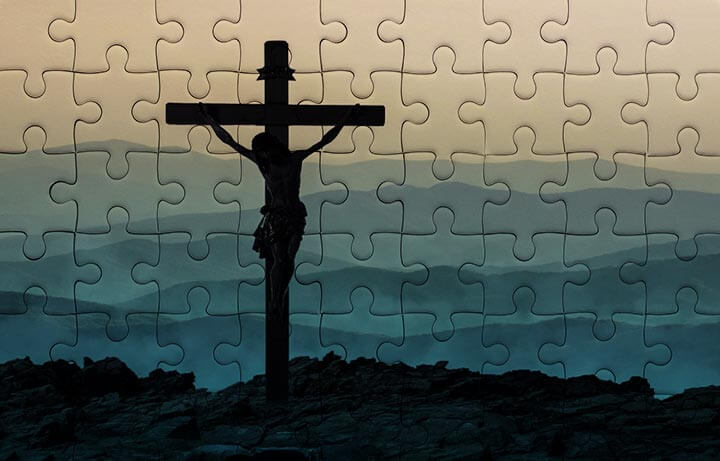
Concordia Seminary Newsroom
We Belong to Christ
Freedom at its best

by Dr. Joel Elowsky
Everyone belongs to someone, whether we like it or not. Sometimes we really like it — as in, I belong to my wife and my wife belongs to me. I do not own her. And, she does not own me. But we do belong to each other and are incomplete without each other.
Other times, the thought of anyone owning us is downright repugnant, as in when somebody tells us, “I own you.” Jesus got this reaction from the Pharisees in John 8 when He told the Jews who had believed Him that they would know the truth and that truth would set them free (John 8:31-32). Their indignant reply was, “We have never been slaves to anyone” (John 8:33). How dare Jesus imply they were slaves of anyone! They bristled at the idea of “belonging” to anyone.

Belonging to someone implies ownership. The ugly history of slavery in our country and in others left a legacy of treating people like property. God’s own people, the children of Israel, were someone else’s property for 400 years in Egypt — despite the Pharisees’ protestation. God wanted His people never to belong to anyone else again. This is why He delivered His people through His jihad of the 10 plagues. This is why He led them through the Red Sea. He freed them to be His people. They now belonged to Him.
As the new Israel, so do we. Jesus said you cannot serve two masters (Matt. 6:24) — which implies that we are serving at least one. He also said in one of the theme verses for Concordia Seminary’s 2023-24 academic year that we are not our own. We were bought with a price. Therefore we are to glorify God with our bodies (1 Cor. 6:19:20). The implication in Paul’s words is that what we do with our bodies says a lot about who we ultimately belong to and even what it means to be human.

There is a recent book by Alan Noble titled You Are Not Your Own: Belonging to God in an Inhuman World (InterVarsity Press, 2021). He explores what it means to be human in our modern world, in North America in particular, and has this to say:
[There is] a particular understanding of what it means to be human: we are each our own, we belong to ourselves. From the early political liberalism of the seventeenth century, with its language of individual liberties and rights, over time westerners began to think of themselves as naturally sovereign: ‘The modern political idea, that we are owners of ourselves … has widened to encompass all … aspects of existence. The sovereign man who is only like himself, who Nietzsche had imagined, has now become the norm.’ From this flows the belief in the virtue of freedom as limitlessness. To be your own and belong to yourself means that the most fundamental truth about existence is that you are responsible for your existence and everything it entails. I am responsible for living a life of purpose, of defining my identity, of interpreting meaningful events, of choosing my values, and electing where I belong. If I belong to myself, then I am the only one who can set limits on who I am or what I can do. No one else has the right to define me, to choose my journey in life, or to assure me that I am okay. I belong to myself.

While this may first appear to be quite liberating, we soon find out that belonging to ourselves is an incredible burden. A fundamental lie of our modern age is that we belong to ourselves, not to God. This lie forces upon us a different reality than the one we were created for: We become the ones to determine whether our life has meaning or not, as we sideline God. With God on the sidelines, we become the arbiter not only of what is right and wrong, but also over what has value — or not, and over our very identity as human beings. Everybody is busy today crafting his or her own identity, whether it is around gender issues, political ideology, health, wealth, status. We are in fierce competition with one another to be the truest form of whatever identity we have created for ourselves on Instagram or Facebook or TikTok. But we inevitably fall short. There is always someone out there exceeding our expectations. That someone is rarely us, however.
By choosing “We Belong to Christ” as this year’s academic theme, we are recognizing the tyranny of choosing to belong to anyone else — especially ourselves. We are conceding that we did not choose Him. He chose us (John 15:16). We belong to Him, much more than He belongs to us. And that’s OK. It is not only OK. It is the only way, the only truth, the only life worth living (cf. John 14:6). There are implications in all of this for our life together on the Concordia Seminary campus as well as through our extended presence around the globe and in our sometimes virtual life together accomplished through Zoom and other software.

If we belong to Christ, we also belong to each other because we are all members of His one body, the church. This means we are accountable to one another, and we also strengthen one another and build one another up (1 Thess. 5:11). We worship together, we study together, we pray together, we support one another, we pray for one another — all because we belong to Christ. This is true for us as a campus community and as members of the larger body of His church. Membership in His body has its privileges — and its responsibilities. Martin Luther speaks about this in his explanation to the Apostles’ Creed in the Small Catechism.
Luther’s explanation of each of the three articles of the Apostles’ Creed situates us in a dependent relationship to our Triune God. For the sake of brevity, we confine ourselves to his explanation to the Second Article of the Apostles’ Creed, where he addresses this issue of ownership most directly as he broaches the subject of our redemption:
I believe that Jesus Christ, true God, begotten of the Father from eternity, and also true man, born of the Virgin Mary, is my Lord, who has redeemed me, a lost and condemned person, purchased and won me from all sins, from death, and from the power of the devil; not with gold or silver, but with His holy, precious blood and with His innocent suffering and death, that I may be His own and live under Him in His kingdom and serve Him in everlasting righteousness, innocence, and blessedness, just as He is risen from the dead, lives and reigns to all eternity. This is most certainly true. [emphasis is mine]
Our redemption, our salvation was accomplished and won through an expensive transaction. Jesus Christ paid a price for each one of us to rescue us from death and from the power of the devil. But this was not something money could buy. Only a life for a life; only the Author of Life for the life of the world. Jesus paid the ultimate price at Calvary to buy us back after we had sold ourselves into the slavery of sin, death and the devil. The One who brought us into being and gave us the breath of life gave up His last breath for us and for our salvation. But that’s not all. Luther then details what this means for us.

The first thing it means is that I am His own. I can no longer serve that other master, the old nature in me that needs to be drowned and die with all its sins and evil lusts. I have the opportunity now to live a new life under Jesus Christ in His kingdom. Living under a sovereign can be oppressive — unless that sovereign loves his people and sees his reign as an opportunity to serve his people and make sure they are safe and taken care of. We in the West are so used to our political system of democracy that most of us would have no idea what a benevolent monarchy even looks like. But we have to look no further than our Lord and His kingdom. When we seek first His kingdom and His righteousness, everything else will be added and given to us as well, Jesus says (Matt. 6:33).

We see a picture of this in the 14th chapter of Paul’s letter to the Romans. He writes, “If we live, we live to the Lord, and if we die, we die to the Lord. So then, whether we live or whether we die, we are the Lord’s. For to this end Christ died and lived again, that he might be Lord both of the dead and of the living” (Rom. 14:8-10 ESV). These words from Paul remind us that our lives really are in the hands of our Lord. The reason that Christ died and rose again is so that He would claim what is ultimately only His — you and me. This is a sovereign ruler willing to die for His people. How many human rulers do you know willing to do that? It’s rare.
This is the One we belong to! Our Sovereign calls us to live that same sacrificial love for one another. We belong to Him. We belong to one another on campus and in His body, the church here in North America and throughout the world.
I would like to conclude with this thought. When I was at Concordia College, Ann Arbor, Mich. (1981-85) — what some refer to as ancient history (my field) — I lived in Timothy dorm all four years. I still remember our motto during one of those years, which has stuck with me ever since. It encapsulates for me Concordia Seminary’s motto for this year, “We Belong to Christ”: “Therefore encourage one another and build one another up, just as in fact you are doing” (1 Thess. 5:11, NIV).

This is what freedom looks like.
Dr. Joel Elowsky is the Frank and Valerie Fuerst Professor of Historical Theology, dean of Advanced Studies, director of the Center for the Study of Early Christian Texts and coordinator of International Seminary Exchange Programs at Concordia Seminary, St. Louis.